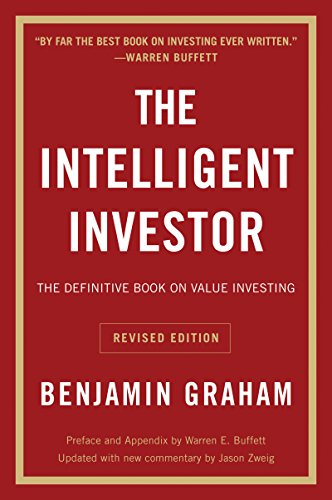Why is it that most high schools don’t teach their students how to make smart financial decisions?
We never grow up learning how to master the fine art of making smart moves with our money. If you don’t learn it at college or your parents take you through it, you have to learn by trial and error– and error is too costly.
Welcome to Snapreads! Today, we’re going to teach you the fine art of making smart financial decisions!
You have to Think Long Term
The first piece of advice isn’t much of a shortcut to making fantastic decisions. It’s a long-term decision, but one that’s most rewarding.
As humans, we are programmed to want instant gratification and seek immediate results, but thinking long term as you make financial decisions not only help you be smarter, but you’re building wealth.
Now, how can you think long-term? If the idea sounds too overwhelming, then break it down like this. We make more financial decisions every day than we think. Whether we’re deciding on buying a house– of course, that’s a big decision– and whether or not you want to pick up a cup of coffee on your way to work, it’s all equally impactful in the long run.
Let’s say that cup of coffee cost around $8? Then that adds up to $40 a week, and nearly $20,000 over the course of ten years. Do you want to spend $20K on coffee?

The Intelligent Investor
by Benjamin Graham
⏱ 12 minutes reading time
🎧 Audio version available
A Dime of Every Dollar
Another tip that will dramatically benefit you, one that you’ll thank us for in a couple of years, is to save even if it’s a dollar. When you find a stray ten-dollar bill in your wallet, between your couch cushions, then save it for a “rainy day.” In no time, you’ll have $100 saved.
Over time, that $100 will be more than what you had before. Some may choose to save a decent chunk of money, or others may decide to indulge in a vacation. The best thing about this is that you don’t even feel like you’re saving, so you don’t have the compulsive need to spend it.
Then you can move on to saving a dime of every dollar. This tip is as powerful as it is suspiciously easy. It will turn into a habit.
Be Frugal
Did you know that Warren Buffett, one of the richest men in the world, a man who’s been on the top 10 list of billionaires for years now– Yeah, that “Oracle of Omaha” as people call him– he’s still living in the same home he bought in 1957. He paid $31,500 for a five-bedroom house.
Do you know what that shows us? We have to be frugal in our lifestyle. So even if you can afford it, search for the best prices. Whether that’s a product in the grocery or it’s a service or deciding where you’re going to go on vacation, find deals, use discounts, use coupons. Cash, Not Credit.
Credit card debt sucks. If the debt becomes too out of hand, it will suck the life and energy out of you. If you can afford it, don’t finance a lifestyle on credit.
If you can avoid it, instead of using a credit card for everything, try paying for everything in cash. That includes anything from groceries to down payments and cars. Staying out of debt is the smartest financial decision you can make– and it will make you the happiest.
But sometimes, credit card debts are unavoidable. What you can do is to pay off all your current debt, starting with the most expensive ones that include the loans and the credit cards that charge the highest interest.
Then once those are paid off, start working on your mortgage. If you want to save thousands and thousands of dollars in interest, consider cutting those monthly payments into bi-weekly payments.
When you’re shopping, credit cards have a magical ability to make you feel invincible. Like you have the entire bank at your disposal. But you don’t. You can accidentally go over budget and not realize it until after you’re home.
So live within your means even if you can afford more sometimes. When you live according to your means, purchase what you can afford, don’t go out every night for dinner, then you can escape unnecessary debt.
Be Honest
You may think that honesty has no place in this subject, but it’s relevant when you think about how often we talk ourselves into some shady and plain bad financial decisions.
We have to be honest with ourselves. Be honest with yourself. Be honest about what motivates you behind that decision. If you have to, consult a family member or a friend to see things from an objective perspective.
Do the Important Things First
The fundamentals of making decisions that will benefit you in your retirement days are to tackle the most critical things first, financially.
Investing in your retirement may not seem important at the moment. You may see it as something that you can put off, but it’s one of the most important financial decisions you can make.
The second you have the money, rather than going on an expensive vacation to celebrate, take immediate action and see what necessary projects or financial goals need to be addressed. Does your home need repairs?
Or can you use this money to get that life insurance finally? Once you tackle these important things first, the rest and the more luxurious things will fall into place.
Create a Spending Plan
If you’re spending more than you’re earning, you’ll never accumulate wealth. And if you don’t know where you’re at financially, then it’s a sign that you’re headed in the wrong direction.
The best way to progress is to create a spending plan, a budget. You start by tracking all your expenses for a month or so and then creating a realistic budget.
Invest
Financial success is often synonymous with watching how much you spend for a reason. One of the smartest decisions you can make is to invest in something that will bring you passive income. Sure, your money may not double every day, but it’s going to increase.
Even a small amount of capital can come around, and, what do you know, you’ll find yourself receiving a decent return on that investment. In order to rack and stack money, it has to be invested.
Related: The One Essential Key to Wealth Building No One Talks About
Prepare for the Future
Investing is an art,– one that requires precisions and sometimes taking risks, but it will all come crashing down if you’re not prepared for the future. Being prepared is crucial.
Do you want to work during those retirement years because you either don’t have enough savings or because your pension is barely enough to cover the bills? Do you want to delay your retirement or even have it become not an option because you’re still in debt and need to work it off?
The answer is probably going to be a big no.
In that case, you need to prepare for the future. Retirement isn’t the only thing you have to research and think about. You have to think about protection from financial loss such as insurance, and what if an accident happened. An accident doesn’t even have to be personal.
A natural disaster can come out of nowhere and cost you thousands of dollars in damage. It’s never too early to start saving up for the future, especially for retirement.
So start saving up as early as you can. Now.
Keep Tabs on Your Bank Account
It’s scary to look at your bank account, especially when you know that you’re not going to like the number of zeroes on it, but ignoring your bank account is a slow lane that’s going to land you in financial trouble.
When you keep tabs on your account, you’re more self-aware. If you see any unusual activity or irregularities, you can stop and alert the proper authorities if you find yourself becoming the victim of fraud.
Fraud aside, you can stop your bad habits and be aware of how much you can afford to spend, and stop yourself from getting into debt. Do Your Homework.
We want to do homework at this moment. Before the lesson, we want to prepare, know the curriculum by heart, and be ready to recognize that that car salesman is ripping you off.
Before buying a new phone, TV, or laptop, most people tend to spend more time on research than they do when it’s time to purchase an investment or buying a home. So before you make any colossal decision, do your homework first.
Sleep On It
I guarantee that no significant, life-changing financial purchase or decision needs to be made on the sport. If you feel like someone is pressuring you into making a financial decision, then that’s red, glaring, and loud warning signs that this decision will benefit them more than you.
If you’re patient, you can give this opportunity some thought, or you can wait for the next, best, worthwhile opportunity. So sleep on it, find alternatives, get a second opinion, and consult your family and friends.
What Is Snapreads?

With the Snapreads app, you get the key insights from the best nonfiction books in minutes, not hours or days. Our experts transform these books into quick, memorable, easy-to-understand insights you can read when you have the time or listen to them on the go.


